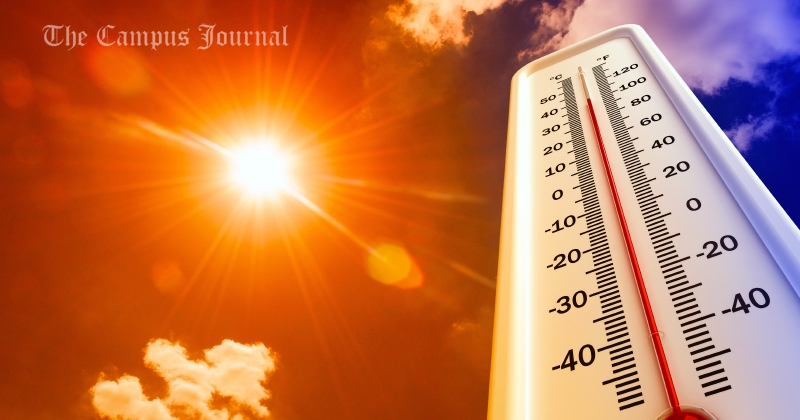
| The summer of 2018 has been described as a disaster for the country |
This summer had the highest temperatures since 1994. The summer of 2018 has been described as a disaster for the country. The residents of old apartments had to suffer from the heat because of a power outage followed by a transformer malfunction due to excessive power demand. People were forced to operate the air conditioner in order to avoid the heat, which led to an unavoidable increase in the electricity bill. As a result, citizens raised concerns over the burden of the electricity bill, made them raise their voices demanding the government to reduce it.
President Moon Jae - in pledged in his presidential campaign to shut down nuclear power plants in phases. His pledge was to shut down aging nuclear plants and reduce the proportion of nuclear power plants in stages by not establishing additional nuclear power plants. South Korea has been vaguely thought of as a country that is unlikely to be damaged by nuclear power plants. However, the 5.5 magnitude earthquake in Pohang has aroused attention to the public of the damage that can be caused by nuclear power plants. Apart from natural disasters, South Korea has the sa
fest nuclear power plants in terms of safety and economy. Additionally, economists assert that nuclear power plants are considered to be one of the driving forces for South Korea to become an economic powerhouse. They say that even if we introduce new and renewable energy systems extensively, there is not enough land to actively establish wind power plants or solar thermal power stations. which makes it difficult to apply other renewable energy. They also worry in terms of that electricity bills will rise. In case of Germany, which initiated de-nuclearization in 2004, the electricity bill has increased by 78% during the past decade. This equals nearly three times the current electricity bill in South Korea. Eventually, the government’s pledge to decrease nuclear power plants has been rolling through. However, the power plant had to reactivate due to an unexpected surge in electric power demand which was an unavoidable alternative outcome.
It is for sure that our country has historically recorded its hottest summer, while Japan, a neighboring country, was also suffering from a 40℃ heat wave. However, there was one thing that was different from our country. The Japanese government has advised to avoid excessive power saving and use air conditioners and electric fans on hot and humid days. Japan had to endure the murderous temperatures and humidity which resulted in 125 casualties from May to July. In order to prevent these tragedies, the Japanese government recommended to operate air conditioners. This which brought the misunderstanding to some South Korean citizens that Japan has no worries about electricity charges, which led to criticizing their own government to lower the high electricity bill. In the case of Korea, the charge of 280.6 won is imposed when it exceeds 400kwh, and 300 won when it exceeds 300kwh in case of Japan. From the point of view of progressive rate, the gradual progress of each country is divided into three stages. In the case of Korea, the third progressive stage is three times that of the first. In Japan, third stage is 1.5 times the first stage, which makes the burden of the progression rate much smaller than that of Japan. The average monthly consumption of 4-member households is 350kWh. In South Korea, 55,000 won would be charged while in Japan, 94,000 won would be charged proving that Korea has 30% cheaper price electricity available.
Eventually, the Korean government lowered the electricity bill a little as a solution. But low-income people can not even afford an air conditioner which makes it meaningless for them. It is therefore clear that the government should identify the actual problem hiding under surface.
By Jeong Seung-In, reporter samcandothat@naver.com
<저작권자 © The Campus Journal, 무단 전재 및 재배포 금지>

 Shrinkflation, Consumer Deception
Shrinkflation, Consumer Deception




